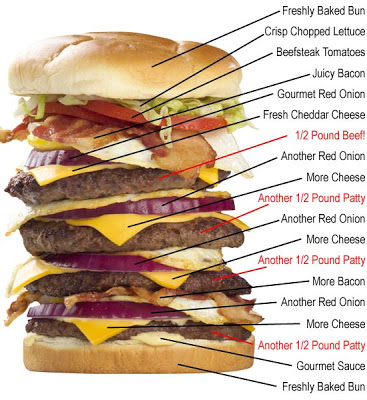Attention ‘yo-yo’ dieters! While many people are able to shed pounds with a variety of dietary and lifestyle interventions, the obstacle that is the largest for many is keeping the pounds off. Many studies have tried to find the optimum diet for weight control and prevention of weight regain, but these studies have been small and conflicting in their results. A new study finally provides some larger scale guidance, showing that a higher protein, lower glycemic index diet is beneficial in prevention of weight regain. (Learn more about what ‘glycemic index’ means here.)
The DIOGENES study, led by my colleague Thomas Meinert Larsen at the Department of Human Nutrition, University of Copenhagen, where I worked on research sabbatical last year, was published in this week’s issue of the New England Journal of Medicine. This is a large study of 773 participants in 8 European countries, testing the effect of five different diets on weight maintenance:
- a high protein, high glycemic index (GI) diet
- a high protein, low GI diet
- a low protein, high GI diet
- a low protein, low GI diet
- a control diet (typical to the country’s usual diet; moderate protein, with no GI recommendations)
Following a period of weight loss on a low calorie (800 cal/d) diet, participants were randomized to one of the five diets above. In two of the research centres, including the Copenhagen site, participants shopped for free in the research supermarket, so that the exact composition of food intake could be strictly monitored. (This is the same research supermarket that I have video blogged from previously.)
Participants were not limited as to the amount of food intake (food intake was ‘ad lib’), but were instructed to try to keep their body weight stable (though further weight loss was also allowed).
Among the 548 patients who completed the six month study, weight regain was seen only in the low protein, high glycemic index diet. The high protein component of the diets spared about 1.4kg (3 lb) of weight regain, and the low glycemic index component spared 1.1 kg (2.4 lb) of weight regain. Participants in the high protein, low glycemic index diet were the only group that continued to lose weight through the study period.
Dropout rates were also highest in the low protein, high glycemic index diet, suggesting that this poorly satiating diet may be harder to adhere to.
Interestingly, these differences in results and adherence were seen with only a small difference achieved in dietary composition between groups. The differences that were achieved in the study were 5.4 percentage points of total energy in protein content between the high-protein and the low-protein groups, and 4.7 glycemic index units between the low glycemic index and the high glycemic index groups.
The study concludes that a diet moderately high in protein intake and slightly reduced in glycemic index improved maintenance of weight loss and compliance with the diet, and is therefore ideal to prevent weight regain.
Dr Sue Pedersen www.drsue.ca © 2010 drsuetalks@gmail.com
Follow me on Twitter for daily tips! @drsuepedersen
Follow me on Facebook: drsue.ca












